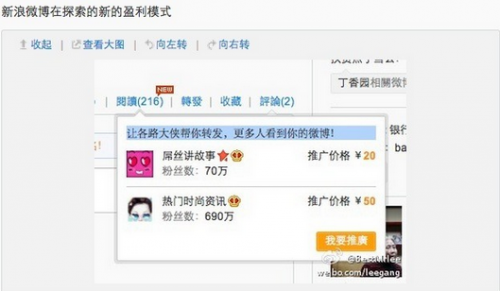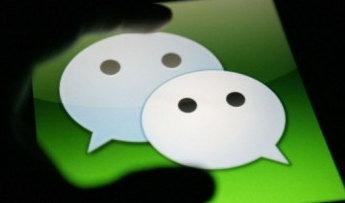We Are Social Asia Tuesday TuneUp #86
WeChat subscription plans rumoured to be available soon
Tencent has been rumoured to partner with an unspecified Chinese telecom to offer special WeChat mobile subscription plans, according to Chinese tech site, iFarnr.
As reported in TechinAsia, details about the name of the telecom and dates when the new packages will be offered are still unknown. The plans will allegedly offer discounts to WeChat users while simultaneously giving the telephone operator a cut of the Wechat action. The news is quite ambiguous and could simply be a made-up rumour. However, with the current success of WeChat, this idea might be certainly good to consider.
LinkedIn has unrestricted site access in China
While the Chinese government blocks a lot of the world’s biggest social media sites like Facebook and Twitter and even has restrictions on Slideshare, it is surprising that LinkedIn has been permitted for unrestricted site access in China.
As detailed in Mashable, one reason why LinkedIn may have avoided government censorship is because besides email, it is probably the only common major social networking platform that can be accessed by everyone all over the world. Also, it has no localized site in simplified Chinese so users know at least basic English. Which is very beneficial for companies who are looking for talents who can serve them with a more global mindset and in both languages. Lastly, LinkedIn users seem to have no time for a huge revolt because they’re on the platform for business and not to be part of a movement.
Sina Weibo tests a feature that lets users buy influential retweets
China’s Twitter counterpart, Sina Weibo, is trying out a new feature where users pay a small fee to have their content reposted by influential users. According to The Next Web, some users have spotted a link that reveals a list of influencers on the network where users can pay whoever they would like to repost their content to reach a larger audience.
In the meantime, this “pay-for-retweet” feature is still unclear and it is not yet understood how an influencer agrees, participates and how much fee they will be able to collect. Also, this feature has a huge potential to create credibility issues for both influencer and creator. It is true that influence and retweets are gained out of trust and genuine worth. Getting paid conflicts the passion and highlights the issue that people generally despise advertising in their newsfeed.

Goodbye to Facebook Questions
Last month, Facebook announced a simplification of their ad offerings, including an end to promoted questions. It’s now been reported that many page admins have seen Questions disappear entirely and Facebook have confirmed that, for the majority of pages, the service is history:
We’re no longer offering questions as an advertising product, or as a tool for all pages on Facebook, but we’re exploring the value questions bring to pages that produce public content — like news organizations, for example. Questions will remain as a tool for a small group of these types of pages, so that they can help us test a few improvements we’re making to the ways people and pages interact on Facebook.
Instagram Video vs. Vine
Simply Measured have produced some stats about the showdown between Instagram’s new video service and Twitter-owned Vine. In short, they found that twice as many brands are using Instagram video as its competitor and that Instagram Videos see double the engagement of Instagram photos. Some more detailed figures can be seen in the graphic below:

Google plus +1s behave like ‘likes’
+1s on Google+ are set to act more like the ‘like’ function on Facebook, as the network announced that it will now highlight +1s from people in your circles. The new feature will look as below and will function under the same privacy settings you’ve already applied to your circles.

The social return of Twinkies
The last eight months have been difficult for America. It’s not that long ago since confectionary brand Hostess filed for bankruptcy, depriving the USA of one of its favourite treats: the Twinkie. But cry no more! Hostess have announced “The Sweetest Comeback in the History of Ever”, bringing Twinkies and numerous other sweets back into stores. This is being supported by a social media campaign, which has already started on the company’s Facebook page, building excitement by seeding content about the return. This will come into full force on Twitter, when the brand asks fans, including celebrities that complained when Twinkies disappeared, to express their love for the product through the same channel they used to mourn its loss.
Paddy Power trialling Facebook betting app
Irish bookmaker Paddy Power is trialling a Facebook betting app for desktop users, before planning to to roll it out across the board. The app, which allows Facebook fans to bet with real money and interact with each other at the same time, looks to be an innovative combination of social gaming and gambling.
Brands having fun on Twitter
Last week saw mass-interaction between a number of brands, all starting from a single tweet by Innocent. They posted the following:

Which was met with a response by O2:

Innocent then replied:

Before long, Tango and Betfair both got involved, with the various brands sharing amusing pictures.




Just a great example of brands having fun on Twitter, making themselves relatable and follow-worthy.
Bank of America fail to ‘get’ Twitter
Bank of America received a number of complaints last week, suggesting callousness on their part after a New Jersey dad wrote an anti-foreclosure message on chalk in front of one of their branches, and was quickly asked to move on. Their responses really failed to show their ‘human side’, replying over and over again with the same copy. They’ve since assured everyone that there are human beings behind each of their tweets – clearly, they need to learn that “CTRL+V” isn’t always the best response to a customer complaint.
What Greenpeace’s #iceclimb teaches us about social
Six Greenpeace activists scaled The Shard, London’s highest skyscraper, last week, to protest against energy company Shell drilling in the Arctic. Twitter was saturated by the hashtag #iceclimb during the day and Greenpeace undoubtedly had the upper hand over Shell in the conversation. In fact, events like this show us how difficult it can be for brands to get involved with the conversation on certain topics, as We Are Social’s Robin Grant told the Guardian:
Any dialogue they enter into, either with Greenpeace, or the press, or the public through social media is just going to play into Greenpeace’s hands, pouring more fuel on the fire. Unless a company can engage substantively with the issues and therefore is either confident in its position or prepared to change it, there’s really not much point in engaging in that conversation. If the company’s position remains to stick as they are and they don’t want to engage on the issues then it is not to their advantage to do so.

